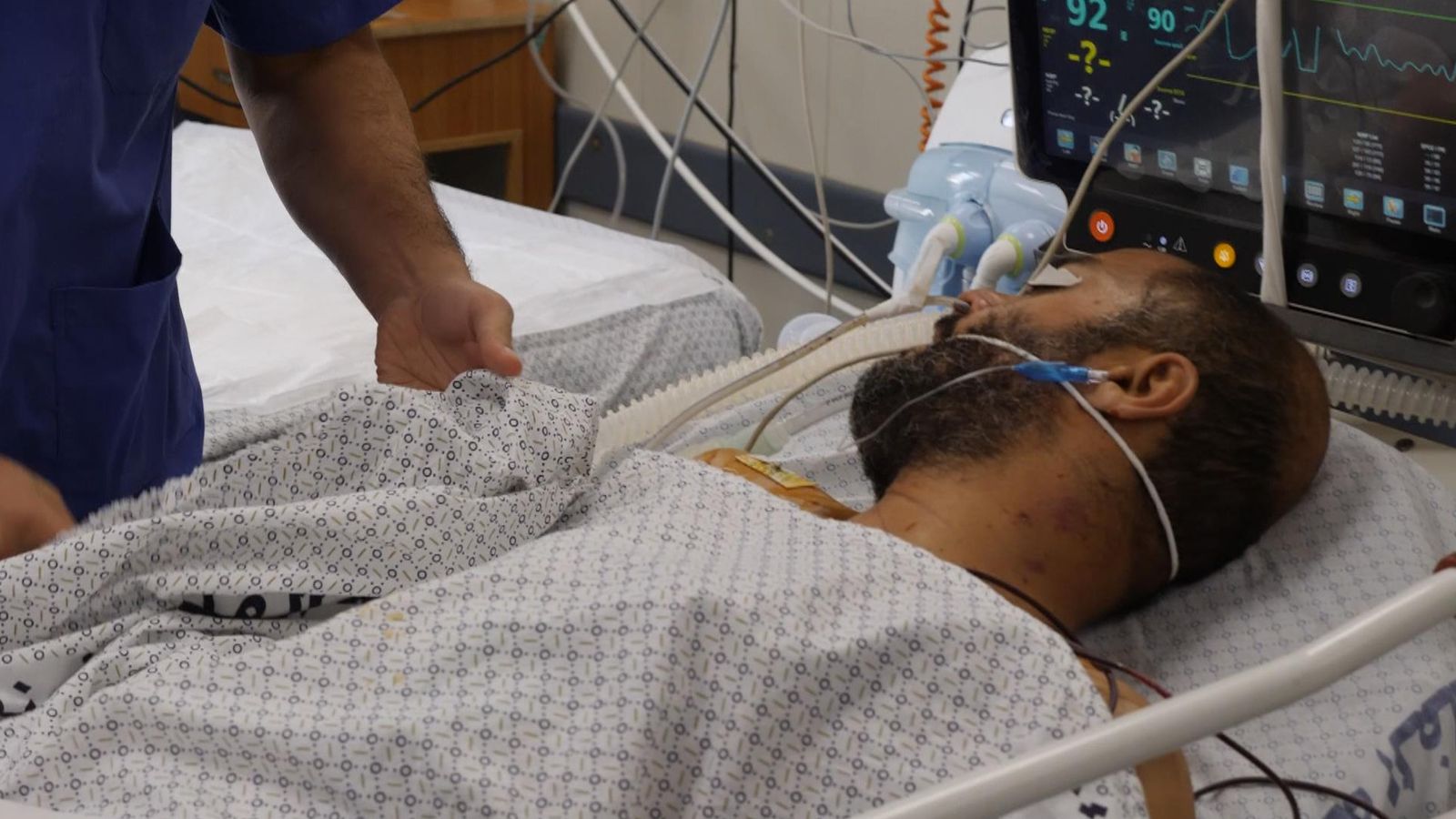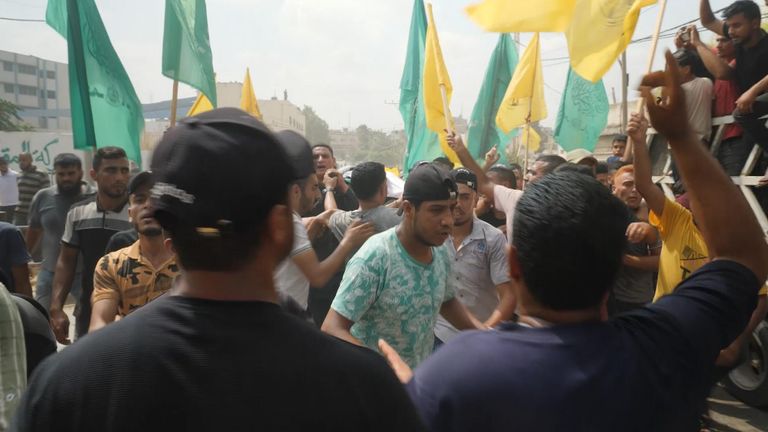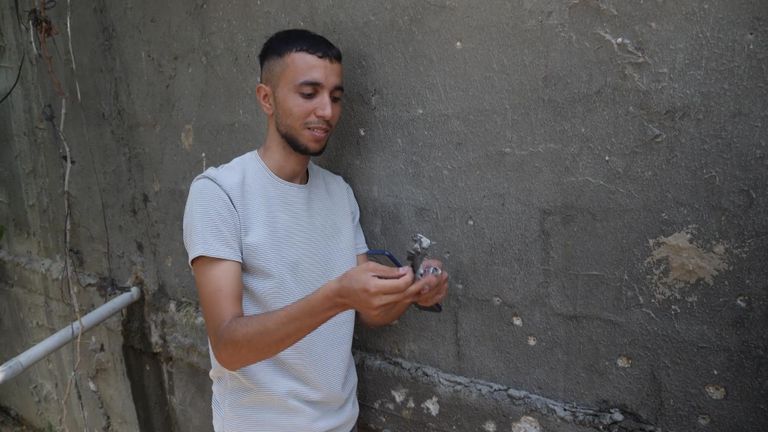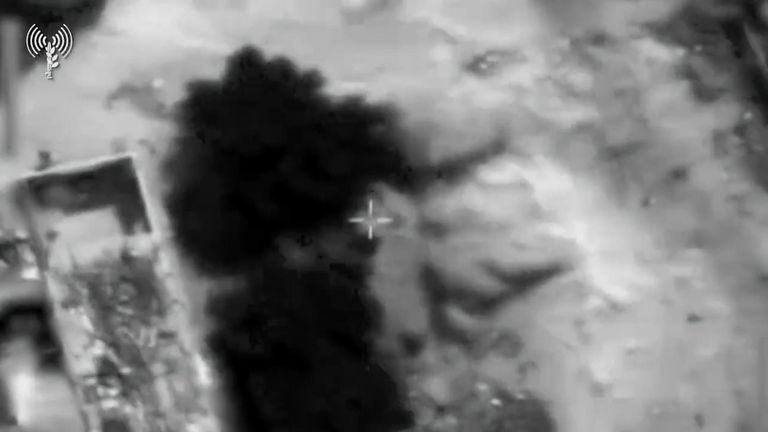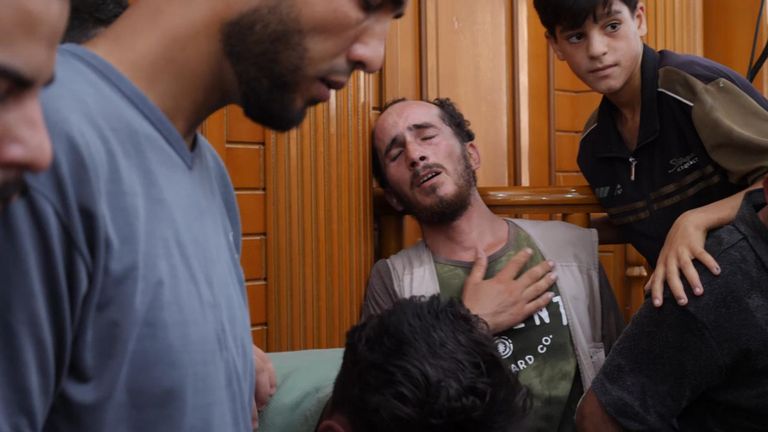Ibrahim Abu Salah was brought into Al Shifa, Gaza’s central hospital, in the middle of the afternoon.
Neighbours said he had been hit by an Israeli rocket on the first of three days of violence in the territory. The doctors said he was unlikely to survive.
One more casualty from an incurable conflict that nobody seems able to solve.
We ran into his funeral procession shortly after our arrival in Gaza. The 44-year old had died from extensive shrapnel wounds the previous night.
The mourners praised God and called for revenge as they flew the flags of rival political factions, Hamas and Fatah, in the air.
The funeral also presented them with an opportunity to express their frustration and their rage on a compact strip of land that has been blockaded by the Israelis for 15 years
Gaza’s an open-air prison they say – and it has suffered the loss of another inmate.
At least 49 were killed in fighting between Israel and militant group Islamic Jihad. It began with a series of “pre-emptive” Israeli airstrikes, which were supposed to destroy the militants’ ability to mount attacks. Islamic Jihad fired some 1,100 rockets in response.
Israel reported no deaths or serious injuries.
We went to meet members of Abu Salah’s family on the day of his funeral and they told us he was not interested in the conflict.
His wife, Lobna, looked bewildered, telling us her husband had just gone to get some air in the afternoon heat.
“It’s hot and there’s no electricity,” she said. “He was trying to escape the heat, sitting under a tree for some air. A rocket from a drone struck him and our neighbour. (They’re) martyrs.”
The family’s battered-looking home stands just a few metres from the ‘no go’ buffer zone which Israel has imposed on Gaza’s frontier.
The Israelis may have mistaken her husband for a militia member, said Lobna, as she sat under a collection of lebbeck trees.
In an aerial video of the strike posted by the Israeli military, an official said militants were using the location to set up rocket launchers.
Abu Salah leaves four children who will be forced to fend for themselves. Their father was jobless when he died, like more than half of Gaza’s population.
This is the story of Gaza, said neighbour, Am Ahad Hamed.
“If you see (Abu Salah’s) kids, it will break your heart and make a stone cry,” he said. “We live a life that’s not worth living. We need someone to solve the Palestinian crisis so we can live like the people of other nations. Other nationalities have a good life, they enjoy their childhood. Our kids have no life.”
During a three-day commemoration for Ibrahim Abu Salah, mourners said that a seat in paradise awaited him.
In Gaza, residents know the violence will return.
